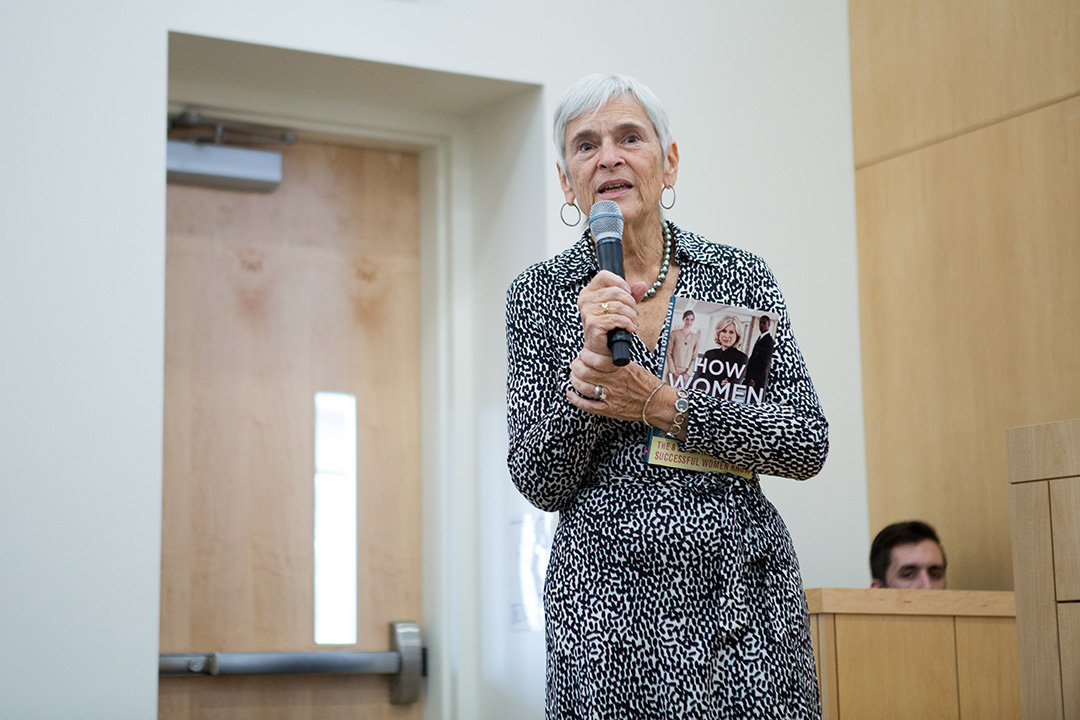By Kristen Mitchell
The George Washington University was awarded $4.8 million by the National Science Foundation to continue funding the Partnership in Securing Cyberspace through Education and Service program, which supports students interested in pursuing careers in cyber security.
The GW CyberCorps: Scholarships for Service program is open to undergraduate and graduate students and covers the cost of GW tuition, fees, living expenses, books and professional development. Scholarship recipients commit to working in the cyber security domain within Federal, state, local and tribal governments after graduation for at least the length of time they received support.
Working for a government agency, students can be “on the front line of what is going on in cyber,” said Rachelle Heller, computer science professor in the School of Engineering and Applied Science and director of the GW CyberCorps program.
GW CyberCorps students come from a range of academic backgrounds, including business, mechanical engineering, computer science, public policy and international studies. They approach cyber security from different vantage points, which is critical to tackling the most significant issues of the day, Dr. Heller said.
“Nobody sits in a vacuum anymore all by yourself,” Dr. Heller said. “The issues don’t have borders, they bleed into other areas...you really need to understand a little bit of the vocabulary so you can really work within the current context of cybersecurity.”
During weekly seminar classes, all GW CyberCorps students get together to talk about the latest developments in cyber security, grow their technical skills and hear from industry and government experts. The program also specifically caters to students such as Alvine Ntandu, who transferred to GW from a community college in Maryland last year.
Ms. Ntandu is pursuing a bachelor’s degree in cybersecurity. She said being part of the CyberCorps program has allowed her to focus on academics and research, attend cybersecurity conferences and afforded her the opportunity to intern at a Washington, D.C., government agency last summer.
“Being accepted into this program has been an honor, it’s really helped with my confidence and even when I go to job fairs, knowing I am a Scholarships for Service student makes me stand out,” she said.
Cybersecurity is a male-dominated field, but Ms. Ntandu hopes she can help forge a path for more women to get involved in the future. She hopes to become a cyber analyst or a digital forensics analyst. Working for the government after graduation will be a chance for her to give back and say thank you for the support she received as a student.
Jacob Biesiada, a graduate student in computer science and scholarship recipient, said joining Scholarships for Service has been an invaluable part of his academic career. It allowed him to pursue a passion project—creating a podcast DCrypted that breaks down cybersecurity issues in layman terms. He hopes a better general understanding of cybersecurity, and the different ways experts in non-computer science fields can contribute, is key to addressing complicated challenges.
“I feel like a lot of people are kind of thrown off by the image that you have to be a hacker to be in the field when really that’s not the case at all,” he said. “When you actually dive into the subject matter a little more...it’s not really a field in isolation.”
Students can receive funding for up to three years. In addition to working for the government after graduation, students are required to have a summer internship in the field and to participate in outreach programs to educate the community on topics like password security and protecting yourself online. Second-year scholarship students serve as cybersecurity advisers to undergraduates majoring in computer science as they complete their capstone projects.
The NSF funds similar CyberCorps programs at other universities. The program launched at GW in 2003 and was led by Lance Hoffman, a SEAS research professor, for 16 years before Dr. Heller took over as principal investigator. Since its founding, more than 100 students have participated. The renewal grant will allow the program to grow over the next five years and support 24 additional GW students.



